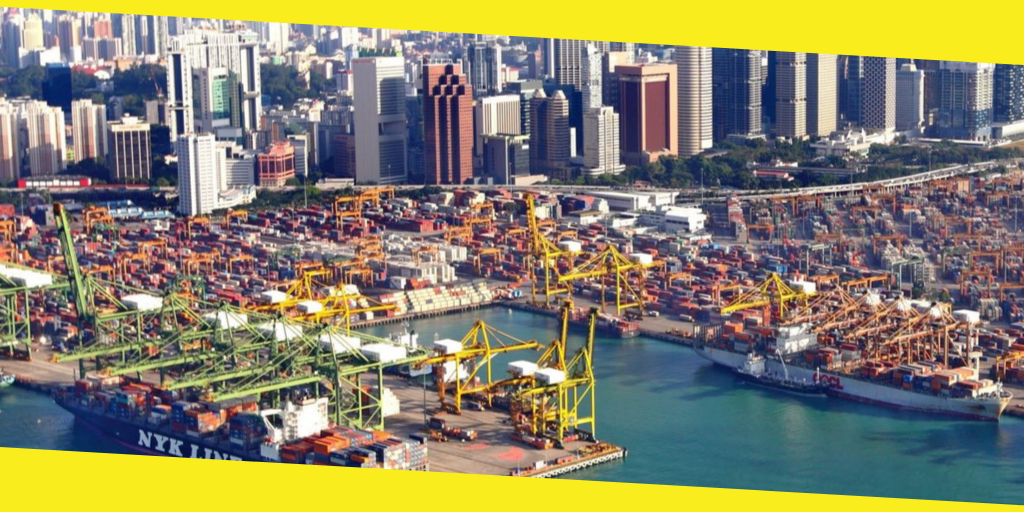Essential Considerations Before Starting to Import or Export From Singapore

From the import and customs procedures to the list of prohibited items, the transportation options to the value of partnering with a freight forwarder in Singapore, read on for the essential considerations before starting to import from or export to Singapore.
Contents
Toggle1. Singapore’s import and customs procedures are efficient and straightforward.
Unlike some of its neighbors, Singapore prides itself on being one of the most business-friendly countries in the world which certainly extends to its import and customs procedures. If you are considering starting to import from or export to Singapore, then you will be pleased to learn that the import and customs procedures there are efficient and streamlined.
That being said, there are three steps you need to follow to begin the process. First and foremost, you need to have a customs account. This can be created by registering with the country’s Accounting and Corporate Regulatory Authority (ACRA). Only then will you be able to begin moving freight to/from Singapore.
Next, you will have to register for a General Interbank Recurring Order (GIRO) account which is what will enable you to make the necessary duty payments for each of your shipments once cleared. Lastly, you must make a customs declaration online for each shipment prior to its arrival in the country. Once the declaration is approved, you will then receive an import permit.
No matter the size of your business, managing import declarations yourself can quickly become a full-time job, which is why it is highly recommended that you appoint a declaring agent to act on your behalf.
Opt for a freight forwarder in Singapore that can operate as your declaring agent – meaning they will declare the freight for you and submit the required documents.
2. It is your responsibility to make sure you are not importing or exporting prohibited items.
When it comes to what you can (and can’t) export or import to Singapore, the country’s government has a list of restrictions and prohibitions.
As a shipper, the burden is on you to ensure that you are not importing or exporting prohibited items. If your freight includes controlled or restricted goods or materials, then you must obtain the appropriate licenses, permits, or authorization from the relevant agency.
For example, Singapore has restrictions on slot machines, animal products, arms and explosives, bullet-proof vests, batteries, chemicals, fish and fishery products, fresh fruits and vegetables, meat and meat products, rice, china/porcelain kitchen and tableware, and toy guns.
Additionally, prohibited items include chewing gum, firecrackers, scanning radio receivers, radio receiving equipment operating on specific frequencies, e-cigarettes and vaporizers, chewing tobacco, and snuff.
3. Singapore has an elaborate network of ocean shipping trade lanes.
Singapore benefits from being considered the gateway to the ASEAN region, which is why it has an elaborate network of ocean shipping trade lanes that are generally always being used. Undoubtedly, the most utilized routes connect Singapore to its Asian neighbors. While the country is also connected by road to some of its Asian neighbors, ocean freight is still the favored mode of transportation.
The busiest five routes for freight going to Singapore are Laem Chabang (Thailand) to Singapore, Port Klang (Malaysia) to Singapore, Tanjung Pelepas (Malaysia) to Singapore, Kaohsiung (Taiwan) to Singapore, and Bangkok (Thailand) to Singapore.
For freight coming to/from Singapore, the longest routes are those to/from the Northern European and Mediterranean ports. For example, vessels moving between Singapore and Barcelona or Algeciras (Spain) require anywhere from 48 to 55 days.
Boats moving between Singapore and the US require anywhere from 19 days (Oakland) to 44 days (Baltimore). On the other hand, the route from Singapore to Jakarta (Indonesia) takes only one day.
4. Changi Airport readily serves the whole country.
The affluent nation of Singapore is also one of the smallest, which means that all areas of the country are close enough to Changi Airport, the only air freight gateway.
Sending your shipments by air is a fantastic option if you are moving high-value items or products that need to arrive in a shorter amount of time. Generally, international shippers prefer to work with a logistics company that can also help with the process of moving goods from the airport to their final destination.
Changi Airport is a significant hub for both passengers and cargo; however, the five busiest routes are Jakarta (Indonesia) to Singapore, Kuala Lumpur (Malaysia) to Singapore, Bangkok (Thailand) to Singapore, Guangzhou (China) to Singapore, and Tokyo (Japan) to Singapore.
Despite having both road and ocean options available, many shippers in Asia prefer to utilize air freight – even when distances are very short. For example, a flight between Singapore and Kuala Lumpur clocks in at 40 minutes. On the other end of the spectrum, the longest flight is between Singapore and Los Angeles (USA) and requires 17 hours of flight time. Flights between Singapore and Europe range from 10 hours (Moscow, Russia) to 14 hours (UK).
5. Opting to partner with a freight forwarding service is the most effective way to start importing from and exporting to Singapore.
By opting to partner with a freight forwarding service, you can be assured that your importing and exporting from/to Singapore is under control. They will work with you to ensure that the required documentation is finished, reducing the likelihood of delays in transit or at customs facilities. After all, it is their job to ensure that everything runs smoothly.
When looking for the right freight forwarding service, make sure to look for one that appreciates the significance of trouble-free, fast imports from and exports to Singapore. Moreover, you want them to show full commitment to helping you achieve this for your business’s success.
Additionally, look for a freight forwarding service that offers an online platform through which you can view the price for all transportation options and book your shipment. Utilizing an online freight-shipping platform means that you can have full traceability of your shipments from the beginning to the end of their journey.
Is your firm considering starting to import or export from Singapore? Why or why not?
Do you feel overwhelmed by getting started? Let us know your thoughts in the comments below!
AUTHOR BIO
As Chief Product Officer for Shipa Freight, Paul Rehmet is responsible for translating the vision of Shipa Freight into an easy-to-use online freight platform for our customers. Formerly Vice President of Digital Marketing for Agility, Paul managed Agility’s website, mobile apps, content marketing and online advertising campaigns. In his 25-year career, Paul has held various technology leadership positions with early-stage startups and Fortune 500 companies including Unisys, Destiny Web Solutions, and US Airways. Paul has a Masters in Software Engineering from Carnegie Mellon University and a Bachelor of Computer Science from Brown University. Paul is based in Philadelphia.
You may like this
Recommended For You
How to Choose Promotional Products for a Business Conference?
Most Inside
Most Inside offers high-quality recommendations and valuable updates to enhance all aspects of your life, providing premium guidance and enriching experiences.




